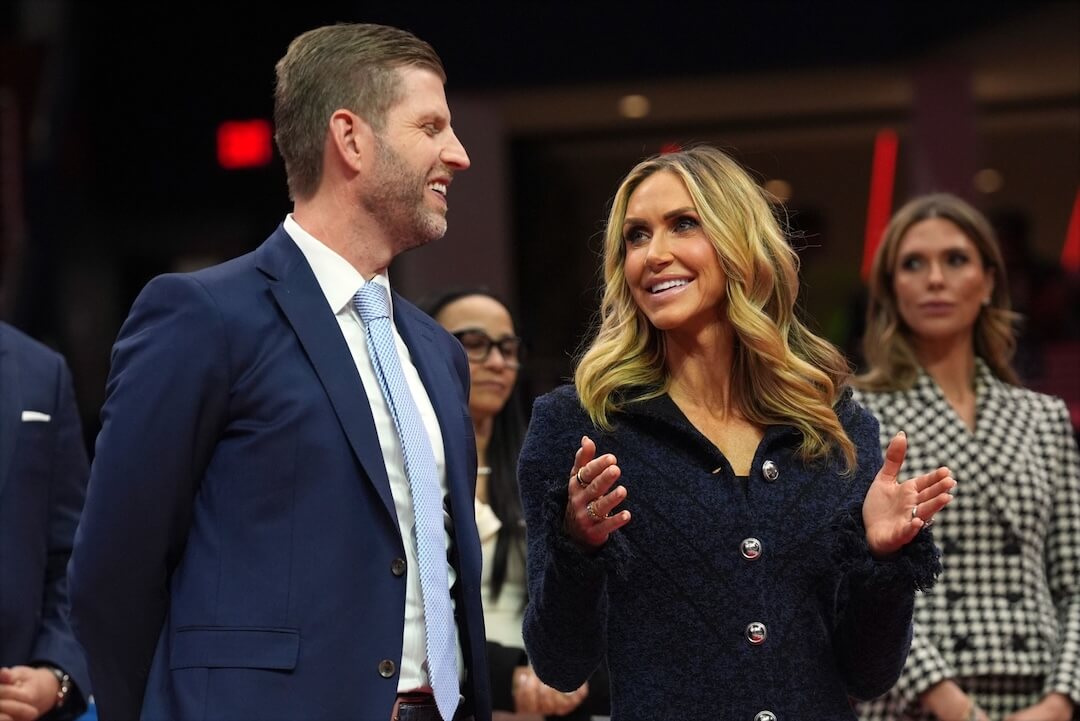This summer, images abounded of striking writers and actors wielding picket signs as they marched outside major media corporations. Though their demands are wide-ranging, one issue has dominated headlines — artificial intelligence.
It is a topic that has made its way to the bargaining sessions of labor unions across industries, including journalism. As news executives scramble to cobble together guidelines for their newsrooms and assemble working groups to experiment with AI, their employees are organizing to find ways to protect their jobs from the new technology. They are fighting to ensure that AI won’t replace the work they do and that content produced with the help of AI tools meets rigorous journalistic standards.
“This is a really hot topic of conversation in union circles because we realize the power it (AI) has,” said Mike Davis, a reporter and the unit chair of the APP-MCJ Guild, which represents journalists at the Gannett-owned Asbury Park Press, Home News Tribune and Courier News in New Jersey. “This stuff’s going to get better and better. I would be hard-pressed to find a Gannett bargaining unit that is not thinking about this.”
Unions representing hundreds of journalists, including editorial staff at The Associated Press, The Wall Street Journal and the Los Angeles Times, have proposed contract language addressing AI this summer. At least one unit has found success. Last month, journalists at the Financial Times Specialist ratified their first contract, which includes the right to bargain over the effects of newly introduced technology like AI.
FT Specialist Guild shop steward David Isenberg said his union had been in conversation with their counterparts in the United Kingdom, who had a clause addressing new technology in their contract.
The FT Specialist Guild’s new contract requires the company to discuss in advance the introduction of any new technology that “materially impacts” employees. Union members may also raise concerns individually, and the guild has a right to “bargain expeditiously” with the company over the effects the new technology will have on employees’ wages, benefits and working conditions.
At first, the company wanted the right to just discuss changes, not bargain over them, Isenberg, who covers the Securities and Exchange Commission for FT Specialist, said. However, the union pushed for the word “bargain” because it comes with special legal obligations.
“Bargaining under the law means they have to actually consider granting concessions and try working in good faith to find an agreement,” Isenberg said. “A discussion is, ‘Hey, this is what we’re going to do,’ and then the union says, ‘Whoa, we don’t like that.’ And they say, ‘Hey, we discussed it with you,’ and then they implement exactly what they want.”
Other unions are still struggling to negotiate AI-related agreements. The chief concern among many is the potential loss of jobs. The proposals put forth by the APP-MCJ Guild and the AP News Guild, which represents journalists and technicians working for the Associated Press in the United States, both require their respective companies to provide 90 days advance notice of new technology affecting newsroom functions and prohibit using such tools to reduce or eliminate union work.
“If such technology involves the use of artificial intelligence (AI), including machine learning or deep learning, it shall be limited to supplementing the collection, organization, recording or maintenance of information,” their proposals read in part. (APP-MCJ Guild and the AP News Guild are separate units, but they share the NewsGuild as a parent union.) “AI shall not be used to perform work that is editorial in nature, including but not limited to the interpretation or analysis of information, communications with sources or generation of news content or illustrations.”
IAPE Local 1096 — which represents 1,400 Dow Jones employees, including Wall Street Journal journalists — has also put together a proposal barring the company from displacing union members via AI. Union president and Dow Jones content operations specialist Jodi Green said that some audio journalists have shared concerns about AI being used to replicate their voices to generate content.
Though many news outlets have pledged not to replace workers with AI, at least one has already gone back on its word. As a result, unions are pushing companies to commit to protections against AI by enshrining them in contracts, which usually remain in effect for several years.
Last month, G/O Media laid off its four-person Gizmodo en Español team in favor of AI-powered translations even though CEO Jim Spanfeller had told Vox a month earlier that the company would not use AI to replace staff.
GMG Union, which represents workers at Gizmodo, Jezebel, The Root, A.V. Club, Deadspin and several other G/O Media brands, released several statements condemning the company’s use of AI. The union ratified a contract last year, before AI exploded in popularity, but one editor told Digiday that the union has been lobbying the company to return to the bargaining table to add AI-related language to the contract.
Union leaders representing staff at Gannett’s New Jersey newsrooms, Dow Jones and the AP all said that management has refused to agree to their proposals. Gannett has said it reserves the right to unilaterally make decisions regarding AI, Davis said. Dow Jones has taken a similar stance, according to Green. The company has compared AI’s usage to outsourcing, she said. The union’s contract currently requires Dow Jones to notify the union ahead of time if it wishes to outsource jobs and to provide affected employees with money for additional training, and the company wants to set up similar provisions for AI.
Spokespeople for Gannett and Dow Jones declined to comment on union contract negotiations.
At the AP, management has pushed for the ability to use AI to perform the work of people who have already left, News Media Guild president Vin Cherwoo said. AP spokesperson Lauren Easton objected to this, writing, “AP has used AI and automation for nearly a decade to free up journalists to do more meaningful work, not as a replacement for journalist jobs. AP has no plans or desire to use AI to replace journalists.”
Among AP’s uses of AI are earnings reports and sports briefs. Cherwoo, a sports reporter and editor for AP, said the automated sports stories lack context that only human journalists can provide. He added that using generative AI to produce stories in the future raises concerns about accuracy, as many AI programs tend to “hallucinate” and make up facts.
In January, CNET came under fire when its AI reporter was found to have plagiarized other writers’ work to produce stories filled with factual errors. The incident made employees, who were already organizing with the Writers Guild at the time, realize that they needed to address AI.
CNET journalists went public with their union drive in May, and they are preparing to negotiate their first contract with owner Red Ventures this fall. Bargaining committee member and CNET editor Laura Michelle Davis (no relation to Mike Davis) said the CNET Media Workers Union wants a say in how AI is implemented in employee workflows and transparency about what data is used to train any AI tools the company uses. They are also seeking the editorial discretion to not use AI if it fails to meet publishing standards, the right to opt out of using AI without reprisal, and the assurance that AI will not be used to modify already published content after employees leave CNET.
“We’re concerned about protecting our staff, our writers and editors, and their bylines,” Laura Michelle Davis said. “We don’t want them to be held responsible either externally or internally for any decisions made by management around artificial intelligence.”
The unions are all talking formally and informally with other unions, as well as their parent organizations, about the issue. The Writers Guild has held several industrywide meetings on AI, and members of the digital media shops have joined the striking screenwriters on the picket lines in solidarity, Isenberg said.
Many of the AI-related issues facing the screenwriters of the Writers Guild and the actors of the Screen Actors Guild and American Federation of Television and Radio Artists are very different from those of journalists. Nevertheless, Mike Davis said he has found the Hollywood strikes to be a “wonderful tool” for keeping people energized and informed.
“I think the SAG-AFTRA strike and WGA strike are hugely important because we’re all news people, so we all pay attention to the issues affecting the news and media industry, but also … a lot of us like to watch movies and TV shows,” Mike Davis said. “So when the people we appreciate in that field are talking about this stuff and how important it is, I think it just naturally takes a little bit of a bigger place in your mind. I think we pay attention to it a lot more.”
Cherwoo said that if unions aren’t discussing AI now, they definitely will once their contracts expire and they return to the bargaining table. He added that those unions will likely look back at the conversations happening today to determine what protections they should seek in the future.
“We’re kind of setting the stage for everybody,” Cherwoo said. “The language that we get, that we bargain for, is going to be the standard, most likely, that other news unions are going to be presenting to their companies.”







